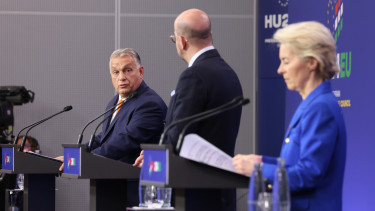Economy
EP adopts new rules on paternity leave
Plenary adopted new rules on paternity leave and non-transferable parental leave, in a final vote on Thursday.
The law, informally agreed with EU ministers, and adopted by MEPs with 490 in favour, 82 against and 48 abstentions, sets minimum requirements for all member states, in a bid to boost women’s representation in the workplace and strengthen the role of a father or an equivalent second parent in the family. This would benefit children and family life, whilst reflecting societal changes more accurately, and promoting gender equality. The right to at least 10 working days of paid paternity leave for fathers and equivalent second parents (where recognised by national law) has been granted around the time of birth or stillbirth and paid at not less than the level of sick pay.
MEPs also added two months of non-transferable and paid parental leave. This leave should be an individual right, creating the appropriate conditions for a more balanced distribution of caring responsibilities within the family.
Member states will set an adequate level of payment or allowance for the minimum non-transferable period of parental leave, taking into account that the take-up of parental leave often results in a loss of income for the family and a higher-paid family member (who is often a man) should be able to make use of this right.
Member states must offer 5 days per year of carer’s leave for workers providing personal care to a relative or a person living in the same household and with a serious medical condition or age-related impairment.
Member states that already guarantee a payment or allowance of at least 65% of a worker’s net wage, for at least 6 months of parental leave for each parent may maintain such a system.
The directive enters into force on the twentieth day following its publication in the EU Official Journal. Member states will have to comply with the rules within three years.
The law, informally agreed with EU ministers, and adopted by MEPs with 490 in favour, 82 against and 48 abstentions, sets minimum requirements for all member states, in a bid to boost women’s representation in the workplace and strengthen the role of a father or an equivalent second parent in the family. This would benefit children and family life, whilst reflecting societal changes more accurately, and promoting gender equality.
Paternity, parental and carer’s leave
MEPs also added two months of non-transferable and paid parental leave. This leave should be an individual right, creating the appropriate conditions for a more balanced distribution of caring responsibilities within the family.
Member states will set an adequate level of payment or allowance for the minimum non-transferable period of parental leave, taking into account that the take-up of parental leave often results in a loss of income for the family and a higher-paid family member (who is often a man) should be able to make use of this right.
Member states must offer 5 days per year of carer’s leave for workers providing personal care to a relative or a person living in the same household and with a serious medical condition or age-related impairment.
Member states that already guarantee a payment or allowance of at least 65% of a worker’s net wage, for at least 6 months of parental leave for each parent may maintain such a system.
The directive enters into force on the twentieth day following its publication in the EU Official Journal. Member states will have to comply with the rules within three years.











